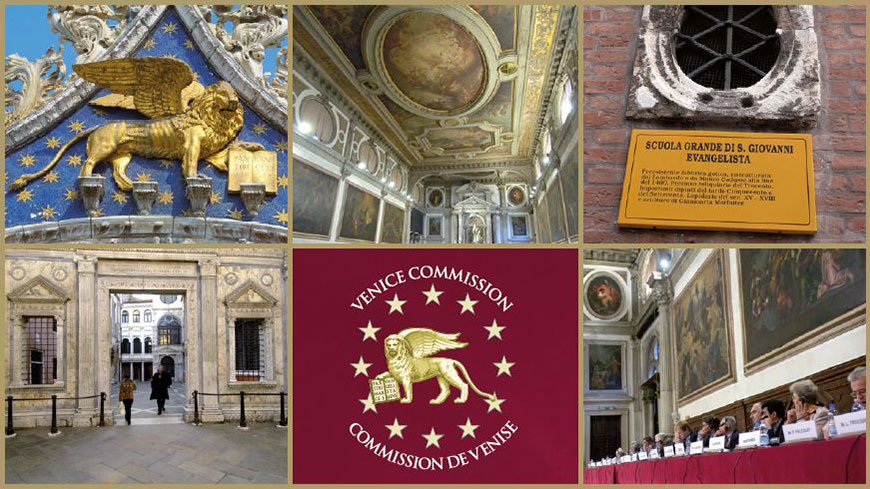The Council of Europe’s body of constitutional legal experts, the Venice Commission, and the OSCE/ODIHR have published an urgent joint opinion today on amendments to the Electoral Code and related legislation of Armenia. Having examined the conformity of the procedure of their development, as well as the conformity of the amendments with international standards, the opinion concludes that the package is to be broadly welcomed, as it addresses the majority of previous recommendations, but improving these amendments is still recommended.
The opinion was requested by the Speaker of the National Assembly of Armenia on 4 March 2021 and is based inter alia on a series of video conferences with representatives of state and non-state actors. On 1 April 2021, the National Assembly adopted a first set of amendments to the Electoral Code concerning the abolition of the territorial candidate lists with 82 votes in favour and no abstentions or votes against. The signing of the amendments into law is pending.
The proposal abolishes the territorial candidate lists, establishing a proportional electoral system only based on a nationwide constituency, thus reducing regional inequalities in the value of the ballot, the opinion reads. The Venice Commission and the ODIHR note with satisfaction that the reform went through broad consultations among different political forces, civil society and expert community and took place within an adequate timeframe, assuring the widest possible support to the amendments.
The Venice Commission and the OSCE/ODIHR have taken note that these amendments are supposed to be applied to the forthcoming early parliamentary elections tentatively scheduled for 20 June 2021, in less than three months. Any legislative change taking place so close before an election should be in principle avoided as it leads to uncertainty. Additionally, the public and all stakeholders have to adapt to new rules in a tight time frame. The abolishment of the territorial candidate lists does not alter the electoral system proper, but it does appear to formally change the way votes are turned into mandates in terms of geographical representation. However, the simplification of the proportional electoral system appears to enjoy a broad support by most of the political forces and the civil society. In addition, in purely technical terms, the new system does not seem to have a major impact either on the capacity of the electoral administration to organise such elections, or on the understanding of the procedures by the voters.
The previous recommendations by the Venice Commission and the OSCE/ODIHR that the amendments have addressed are in particular those related to enabling the formation of governing coalitions, reducing the electoral deposit for political parties, increased transparency of campaigns on the media, offering clarifications on the use of administrative resources, strengthening the quota mechanism for promoting the participation of women as candidates and additional provisions facilitating the participation of people with disabilities.
However, the Venice Commission and the OSCE/ODIHR make the following key recommendations aimed at improving these amendments:
- Reconsidering the provisions relating to electoral thresholds, which do not appear coherent: some have been lowered, while others raised without a clear justification.
- Clarifying the notion of “false information” so that it does not interfere with legitimate aims, for example investigative media, and stifle the political debate.
- Extending legal standing to allow for voters to submit complaints against election results.
- Clarifying the meaning of “gross violation” as a ground for early termination of powers of a member of a constituency and precinct electoral commission.
- Providing for longer time frames to submit an application for recount.
For the purpose of the forthcoming early parliamentary elections, the OSCE/ODIHR and the Venice Commission also recommend that specific measures for holding elections during emergency situations, including pandemic periods, be stipulated in law or in infra-legal texts well in advance.
Other recommendations include strictly applying personal data protection standards in publishing declarations, clarifying the status of the first round election results in relation to the second round, further reducing the amount of the electoral deposit, clarifying provisions on the sanctions related to the campaign funding.
The opinion was prepared under the Quick Response Mechanism (QRM) in the framework of the European Union/Council of Europe joint programme Partnership for Good Governance, funded by the European Union and the Council of Europe and implemented by the Council of Europe.





